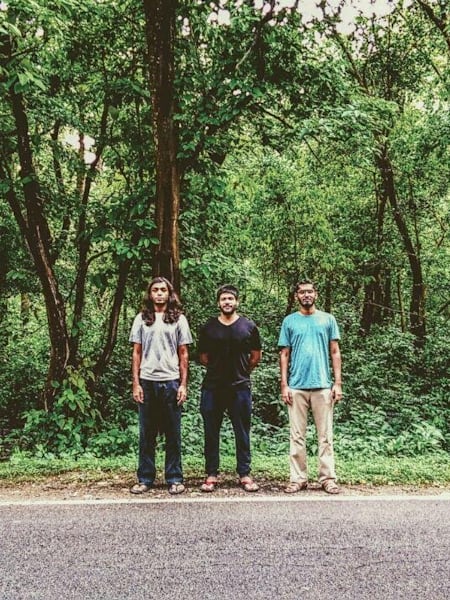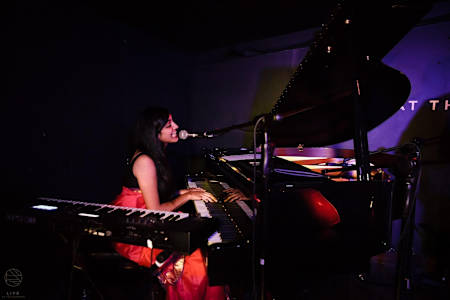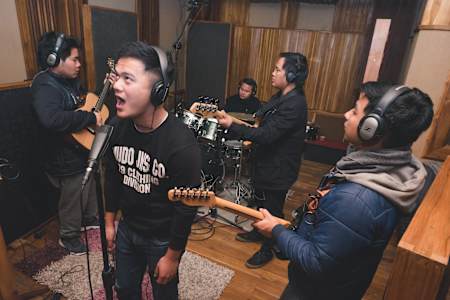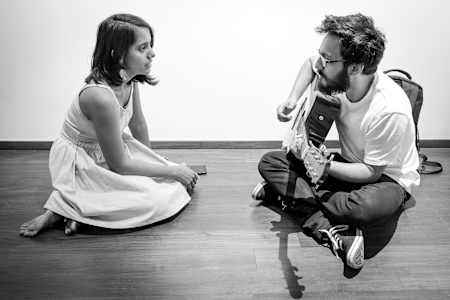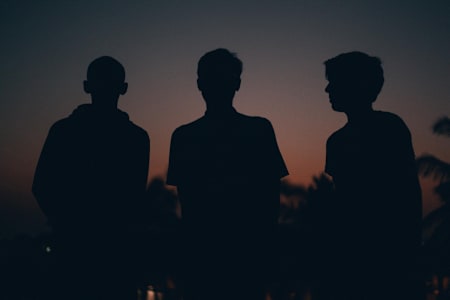What does it mean to break through in the Indian independent music industry? Is it headlining a major music festival, as bass music star Nucleya has done countless times? Acquiring a lakh of fans on Facebook, as Hindi rock band The Local Train did recently? Tallying a million views on YouTube, as rappers Divine and Naezy did with their duet ‘Mere Gully Mein’? Scoring a big Bollywood hit, as folk-fusion group Indian Ocean did all those years ago with ‘Bandeh’ from the soundtrack of Black Friday (2007)? Or simply seeing a long line outside the venue you’re playing because there’s no room left inside for people to get in, as singer-songwriter Dot. witnessed when she performed in Mumbai some months ago?
It’s a tricky business figuring out when you’ve made it when you belong to a place as niche as the Indian independent music scene. At least some of the acts on this list are going to accomplish these aforementioned career milestones. The ten names are a mix of personal picks and recommendations I sought from over two dozen industry insiders, from artist managers, booking agents and record label owners to gig promoters, concert producers and festival programmers as well as folks from digital music stores, streaming platforms and media companies. The result is a diverse mix of artists who share two things in common: they each got a lot of buzz in 2017 and look set for great things over the next 12 months.
Aditi Ramesh
Singer-songwriter Aditi Ramesh is not just another girl with a guitar. The 27-year-old former corporate lawyer with a keyboard composes tunes that seamlessly merge pop, jazz and Carnatic classical to forge a distinct sound. Part of her appeal comes from her ability to write about her life in a refreshingly candid way. ‘Marriageable Age’, for instance, is about parental pressure, and ‘Stuff On Our Minds’ an exposition on people’s need to get wasted. The songs are based on “daily experiences [that] I use as a lens to look at macro-level issues”, said Ramesh, who moved from Bangalore to Mumbai four years ago.
By the end of 2018, Ramesh hopes to quit her day job in HR and pursue music full-time. Her plans include a tour of north and northeast India, an album, and expanding her trio to a larger ensemble that features backing vocalists and Indian classical instruments. Those are just things she hopes to do own her own. There will also be an EP from the Ladies Compartment, the group she formed with vocalists and instrumentalists Ramya Pothuri, Aarifah Rebello and Nandita V. because “boys don’t always share the same enthusiasm we girls have about creating, meeting and practising”.
Ape Echoes
You can play spot the genres in the songs of Ape Echoes, the Mumbai-based band founded by producers and multi-instrumentalists Nirmit Shah, 27 and Sid Shirodkar, 25 whose hybrid sound takes in “jazz, electronica, noise, hip-hop, prog-rock, funk and soul”. Many of these myriad influences are heard on their first EP, which was titled after their original name Ape Machines. That moniker encapsulated their philosophy about how “nothing in art is really original”. “Every single artist, every single composer is borrowing ideas,” said Shah. Among those they’ve taken inspiration from are Stevie Wonder and Robert Glasper whose “ridiculously complicated harmonies” they’ve “tried to internalise and use in our writing process”.
Ironically, they had to change their name from Ape Machines after an identically-named band in the US sent them a cease and desist request. Ape Echoes might be relatively unknown now but that should change as they gig more, and win fans with their improv-heavy sets like the ones they played at the NH7 Weekender and Magnetic Fields festivals. The self-confessed geeks, who enlist drummer Sahil Shah, 26 and bassist Harsh Gadhvi, 25, for their shows, occasionally have as many as four keyboards on stage in addition to miscellaneous gear. Their goals for the near future include recording their full-length debut and weaning off the laptop to perform completely live. “When we’re playing to a track, sometimes we don’t get to make split-second decisions to extend a section or compose something on the fly,” said Shah.
Avora Records
If band competitions are indications of success, then Aizawl-based Avora Records, whose sound hits that sweet spot between alternative rock and pop, are well on their way to stardom. Over the past year, they took the top prizes at the MZU Rock Fest, the largest such event in their home state of Mizoram; the nationwide Sennheiser Top 50; and the prestigious Hornbill International Rock Contest in Nagaland. For a group from northeast India, acts from which don’t get the same level of press coverage as their counterparts in the mainland, the wins have proved particularly fruitful.
“If it hadn’t been for those competitions I don’t think we would have played the NH7 Weekender in Meghalaya or the Orange Festival in Dambuk,” said guitarist Khos Hmar, who in 2015 assembled friends in the city’s music scene to form Avora Records. All the members, which include vocalist Stephen Hnamte, guitarist Ruata Renthlei, bassist CK and drummer Sanga Ralte, are in their twenties. The funds they won are being used to record their debut album, which going by the tracks they’ve released so far will be a collection of love songs you can rock out to. Its release might be followed by a move to Mumbai, Pune or Guwahati. “If we want to go anywhere, we have to go to Guwahati,” said Hmar. “There’s no direct flight. That’s the biggest problem we face as a band.”
Chrms
Of all the artists who belong to Jwala, the cross-country collective of bedroom producers that has been putting out clutter-breaking compilations since last year, Chrms aka Veer Kowli has garnered the maximum mainstream attention. Much of the press has centred on the fact that he’s only 16 years old, but the recognition was also due to the accessibility of his music, which distinguished him from his colleagues whose soundscapes range from down-tempo to noise. “I love emotional stuff and stuff you can chill out to, but I also love just shaking the whole place up,” he said.
Stylistically, he slots his sound closest to the genre known as future bass and counts Australian exponent Flume as a big influence. “Most electronic music is very machine-like,” said Kowli. “His tracks have an organic, human touch.” After the organisers of the REProduce Listening Room series of shows asked if he’d play a set, Kowli learned to DJ so he could perform at the gig. Subsequently, he signed with artist management company Krunk, which got him booked him at venues he would otherwise be barred from entering.
His post-exam plan is to finish his debut EP, which will be an “audio-visual” experience. “I think visuals and sound go together,” said Kowli whose parents are graphic designers who run an advertising agency.
Easy Wanderlings
Pune’s Easy Wanderlings plays the kind of folksy, blues-tinged pop-rock that makes them ideal for afternoon slots at music festivals and favourites of organisers of house concerts. They were the act most frequently named by the people we surveyed, many of whom were charmed by the ensemble’s debut As Written In The Stars, which they put out last August. The album was named so because things have happened fairly serendipitously for the group, from finding their violinist and flautist in a café to landing a slot at the NH7 Weekender in 2016 after festival programmer Anuj Gupta saw three of them perform an acoustic set in Mumbai.
Lead vocalists Pratika Gopinath, 21, and Parmarth Rai, 28, acoustic guitar player Sanyanth Naroth, 28, electric guitar player Sharad Rao, 22, bassist Malay Vadalkar, 29, keyboardist Nitin Muralikrishna, 22, drummer Abraham Zachariah, 24, flautist Siya Ragade 15, and violinist Shardul Bapat, 22, make up the core membership, the majority of whom were at some point or the other students of the Foundation for Liberal Management and Education college in Pune. “At NH7 (this year), there were 11 of us on stage,” said Naroth. “It’s hard to get all of us in one room.” This hasn’t stopped Easy Wanderlings from landing gigs at most of the country’s major music venues and setting their sights on a US tour. “Almost every day we have messages from people saying ‘When are you coming to Austin? When are you coming to Nashville?” said Naroth. Also in the pipeline are a couple of singles that will showcase the recent evolution in their sound, which bears “a lot of Motown influence”.
Ritviz
You could argue that 21-year-old Pune-based electronic music producer Ritviz Srivastava has already had his breakthrough moment. The video for ‘Udd Gaye’, the official “Bacardi house party anthem” that was released towards the end of last year via comedy collective All India Bakchod’s YouTube channel, has already garnered over four million views. But because he doesn’t appear in the video, Srivastava remains relatively anonymous. With the song, he’s found his signature sound, a mid-way point between the club-oriented instrumental dance tracks and the more melodic vocals-based compositions he’s been releasing over the years. He calls it ‘Hindustani dance music’, a nod to his training in Indian classical, which he started learning at the age of seven from his mother, a khayal singer and teacher who he calls his biggest influence.
Srivastava realised that electronic music was his “calling” when he was in his mid-teens and heard house producer Tiesto. “I found [his songs] really interesting, like a Coldplay bootleg where there are Coldplay vocals and that one synth that just matches up to the vocals,” said Srivastava. “That was really exciting. Because vocals are known as the king, and today we have reached the point where tables have turned. There was a time when vocalists would hire a bunch of producers for their music. Today, producers look for vocalists; they have found they can express themselves vocally even though they’re not using their own voice. Now when I’m doing vocals, I feel stronger because I feel my production has got my back.”
Second Sight
Mumbai-based Second Sight is two acts in one. There’s the acoustic folk-pop duo made up of founder-members and singer-guitarists Anusha Ramasubramoney, 24, and Pushkar Srivatsal, 26, and the jazz-soul band, which features bassist Ralph Menezes, 25, drummer Shivang Kapadia, 24, and keyboardist Vatan Dhuriya, 21. In both iterations, it’s the harmonious interplay of Srivatsal’s deep baritone and Ramasubramoney’s rich, textured voice that shines through, much like in the compositions of The Civil Wars, the indie folk duo the pair bonded over as students at the Swarnabhoomi Academy of Music near Chennai in 2015. “Both of us are huge fans, and when we found out we were the only vocal students [at SAM], we were like, ‘Oh my god, we should totally do something like The Civil Wars,” said Ramasubramoney.
But they always knew they wanted to form a band, and roped in batchmate Menezes who brought Kapadia and Dhuriya on board. If the duo takes cues from the likes of Kings of Convenience, the sound of the five-piece is informed by groups such as future-soul ensemble Hiatus Kaiyote, as heard on ‘Make Me Better’, which is among the handful of tracks they’ve released via Soundcloud and YouTube. The uploads have scored them spots at The Piano Man Jazz Club in Delhi and at the SoFar Sounds series of gigs. They’re currently working on their debut EP and planning to incorporate different performing arts forms, from poetry to dance, in their concerts. “When you add a visual element to a performance, it makes it more engaging,” said Ramasubramoney.
Stuck In November
It might be a bit ambitious to say that a math rock band will be among the acts to make it big this year but more people need to hear the beautifully melodic and shape-shifting arrangements of Stuck In November, the current incarnation of which has been around since 2015. Then again, the Bangalore-based trio of guitarist Nihal Anand, drummer and accordion player Mayur Nanda and bassist Nihaal Joseph insists they’re not a math rock band even if that’s what most music writers call them. “It would have to be somewhere between folk and some sort of prog rock,” said Nanda. They probably earned the math rock attribution because “there are some strange time signatures” and “the guitar, it’s like a weird, pitchy kind of sound, really fast at points”.
In other words, it’s the stuff relished by music geeks, who have lavished praise on their EPs, 2016’s First Slice Of Cake and 2017’s First Visit To Camp Telepathy, an acoustic effort for which Anand also played the banjo and clarinet and Nanda the accordion and keyboard. It’s been harder to find venues at which to play the newer material, which requires a silent audience rarely found at the bars that serve as concert halls in our country. That might change after the release of their debut album that Nanda said “will be us in terms of the composition and chord structures” but “will be something that people will get more and relate to a little.”
Tienas
Among the MCs Azadi Records, the label behind breakout hip-hop star Prabh Deep, is betting on in 2018 is 22-year-old Mumbai-residing rapper and producer Tienas aka Tanmay Saxena. At a time when the Indian hip-hop scene is dominated by acts rapping in Hindi and regional languages, it might be surprising that Azadi, a company whose mission is to “highlight pertinent stories that are often ignored by the mainstream”, is backing an artist who rhymes in English. But co-founder Mo Joshi believes that Tienas stands out from the pack of rappers in his city. “[His music is] different from the Mumbai rap prevalent now,” said Joshi. “All his songs are experience based, about a situation or instance.” Indeed, there’s something distinct about Tienas’ tunes, despite the heavy influence of Eminem whose film 8 Mile was a life-changing experience for Tienas.
“After watching the movie, I just got a confidence boost,” said Saxena, who was 16 at the time. “From that day onwards, I started rapping all Eminem songs.” He also started cutting his hair and dressing like his idol. Even his name Tienas is a homonym for his initials T. S. just like Eminem is a homonym for the American rapper’s real name Marshall Mathers. When his friend RaySon4 7, with whom he formed the collective FTS Elementries, suggested they try their hands at writing lyrics, Saxena found he had a lot to say. “It felt good to express myself ’cause that’s the only way I can. I’ve had a speech impediment since I was born.” It turned out he’s a pretty good wordsmith, as evidenced on ‘Fake Adidas’ and ‘Franklin D’, incisive tracks about such complex subject matter as consumerism and depression.
Zokova
From the time they put up a recording of a performance at Delhi’s India Habitat Centre on YouTube in May 2015, capital-based Zokova has impressed audiences with their virtuosic yet restrained instrumentation. The band may only be three years old, but the idea for the project has been with guitarist Ritwik De, 26, for almost a decade, ever since he heard his father’s Sigur Ros CD. The trio, which includes bassist Amar Pandey, 24, and drummer Suyash Gabriel, 25, composes tunes that are frequently described as post-rock but they prefer calling their material “experimental, instrumental” music. “We’ve taken elements from post-rock which we love like how much ambience there’s in it and how much thought goes into the melody, but [our music is] much heavier in certain places, there are some dance-y elements, some very intense elements, some electronic elements,” said Gabriel.
Those varied sounds are also a reflection of the fact that the members are part of multiple projects, including electronic act TankBund, acoustic trio The Yellow Bucket, electro-rock band Mosko, experimental metal group Kraken and blues rock three-piece Noknok. Unlike with those efforts, Zokova’s gigs are played with no breaks in between the tracks. “The concept was to write music that kind of flowed, so our entire set is like one long song.” That song, made up of 11 interlinked compositions based around the “conflicting characters of solitude and loneliness”, will be released as their debut album, which they recently finished recording at De’s Ghar Ka Studios.

